Ink Mage
Literary rating: ★★★½
Kick-butt quotient: ☆☆☆
 The small duchy of Klaar has been impervious to invasion, due to a secure location offering limited access. But when betrayal from within leads to its fall, to the vanguard of an invading Perranese army, heir apparent Rina Veraiin is forced on the run. She is fortunate to encounter one of a handful of people who know how to create mystic tattoos that will imbue the recipient with magical abilities. With her already significant combat skills radically enhanced, and her body now also blessed with a remarkable talent to heal, Rina can set about trying to recover her domain. It won’t be easy, since the king is not even aware the Perranese have landed. But she has help, albeit in the motley forms of a stable boy – sorry, head stable boy – a gypsy girl and a noble scion, whose charm is exceeded only by his ability to irritate.
The small duchy of Klaar has been impervious to invasion, due to a secure location offering limited access. But when betrayal from within leads to its fall, to the vanguard of an invading Perranese army, heir apparent Rina Veraiin is forced on the run. She is fortunate to encounter one of a handful of people who know how to create mystic tattoos that will imbue the recipient with magical abilities. With her already significant combat skills radically enhanced, and her body now also blessed with a remarkable talent to heal, Rina can set about trying to recover her domain. It won’t be easy, since the king is not even aware the Perranese have landed. But she has help, albeit in the motley forms of a stable boy – sorry, head stable boy – a gypsy girl and a noble scion, whose charm is exceeded only by his ability to irritate.
Despite the young age of the protagonist, who is still a teenager, this isn’t the Young Adult novel it may seem. It’s rather more Game of Thrones in both style and content, with the point of view switching between a number of different characters. Some of these can be rather graphic, particularly the story of Tosh, an army deserter who ends up working as a cook in a Klaar brothel. But even this thread turns out more action-heroine oriented than you’d expect. For the madam gets Tosh to train the working girls in weaponcraft, so they can become an undercover (literally!) rebel force against the Perranese. Can’t say I saw that, ah, coming…
Gischler seems better known as a hard-boiled crime fiction author – though I must confess to being probably most intrigued by his satirical novel titled, Go-Go Girls of the Apocalypse! The approach here does feel somewhat fragmented, yet is likely necessary, given the amount of time Rina spends galloping around the countryside. It may also be a result of the book’s original format as a serial. However, it translates well enough to a single volume, and I found it became quite a page-turner in the second half. There, Rina readies her forces to return to Klaar, and take on the occupying forces, which have settled in for the winter.
The tattoo magic is a nice idea, effectively providing “superpowers” that can help balance out the obvious limitations of a young, largely untrained heroine. It is somewhat disappointing that, after significant build-up involving the Perranese’s own tattooed warrior, the actual battle between him and Rina seemed to be over in two minutes – and decided through an external gimmick, rather than by her own skill. In terms of thrills, it’s significantly less impressive than a previous battle, pitting her against a really large snake, or even the first use of Rina’s abilities, which takes place against a wintry wilderness backdrop – more GoT-ness, perhaps?
Such comparisons are unlikely to flatter many books, and this is at its best when finding its own voice, as in the tattooing, or the gypsies who become Rina’s allies. He does avoid inflicting any serial cliffhanger ending on us, instead tidying up the majority of loose ends, and giving us a general pointer toward the second in the three-volume series. Overall, I liked the heroine and enjoyed this, to the point where I might even be coaxed into spending the non-discounted price for that next book.
The Tattooed Duchess
A Painted Goddess
Literary rating: ★★★★
Kick-butt quotient: ☆☆☆
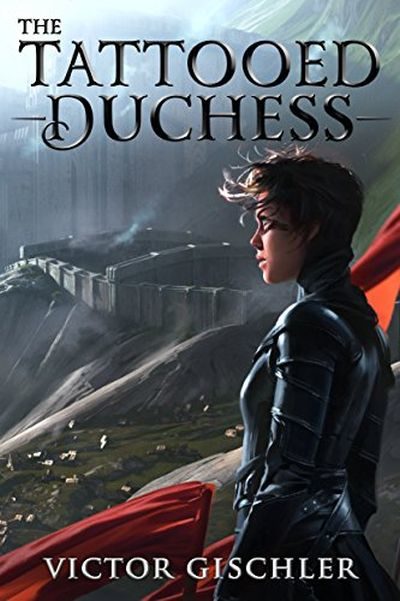 It makes sense to treat the second and third volumes in the series as a single entity. Ink Mage worked on its own as a one-off, with a beginning, middle and reasonably well-defined end, and the eight-month pause between installments was not a problem. Duchess and Goddess, however, really need to be read back-to-back. Mage ended with Rina Veraiin having recovered her family’s territory of Klaar, thanks largely to the magical tattoos covering her skin. But the new duchess is discovering that fighting to get territory is one thing, ruling over it on an everyday basis, quite another. Especially since the Perranese invaders repelled in the first volume, are on their way back with a vengeance. For their Empress Mee Hra’Lito needs a big win to keep control of things on her side of the ocean.
It makes sense to treat the second and third volumes in the series as a single entity. Ink Mage worked on its own as a one-off, with a beginning, middle and reasonably well-defined end, and the eight-month pause between installments was not a problem. Duchess and Goddess, however, really need to be read back-to-back. Mage ended with Rina Veraiin having recovered her family’s territory of Klaar, thanks largely to the magical tattoos covering her skin. But the new duchess is discovering that fighting to get territory is one thing, ruling over it on an everyday basis, quite another. Especially since the Perranese invaders repelled in the first volume, are on their way back with a vengeance. For their Empress Mee Hra’Lito needs a big win to keep control of things on her side of the ocean.
Rumbling in the background, and coming to a head particularly in Goddess, is a changing of the guard in the Kingdom of Helva’s divine pantheon, with the current incumbent as top god being challenged for that position. Disturbingly, the likely replacement is the god of war: never a good thing, especially when he can raise an army of unstoppable dead soldiers and send them after Rina and her allies. Dealing with both those threats, requires Rina to ink up some more. Since she’s otherwise engaged, that means sending expeditions to the furthest corners of the lands and beyond, to retrieve the templates needed for Rina’s power-ups. [Though part of the problem is, these don’t come with instructions, explaining what a tattoo will do…]
In particular, off to the Scattered Isles go stable-boy Alem, who carries a torch for Rina, and gypsy girl Maurizan, who is interested, both in Alem and getting some magic ink of her own. Meanwhile the noble Brasley and a new character, near-immortal female wizard Talbun, are exploring the depths – or, rather, heights – of the Great Library. This is a building so vast, it remains largely unexplored, with its origins and contents lost in the mists of time. Rina, meanwhile, is on a diplomatic mission, aimed at securing support for Klaar, only to be abducted by a group of Perran soldiers and their own mages, left behind when the army withdrew.
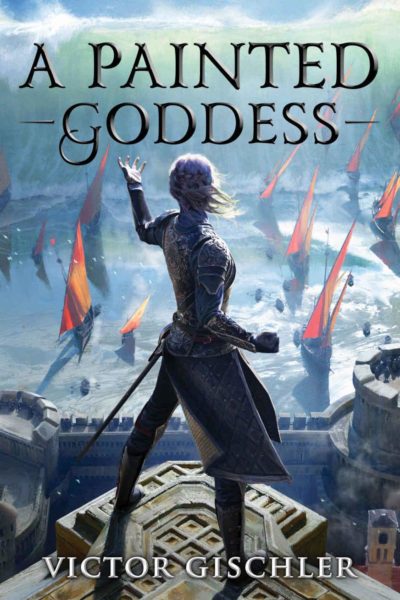 Especially in the second volume, poor Rina is largely relegated to a supporting role. The major threat to her is, not deities or monsters, but the arguably more insidious danger of an arranged marriage, necessary for the defense of Klaar. Maurizan becomes the action heroine focus, supported by members of the “Birds of Prey”, ex-prostitutes who have become the castle guard, as well as Talbun. It’s decent, yet almost inevitably, suffers from the bane of trilogies, “second volume syndrome”, lacking both a beginning an an end [I will say, for understandable reasons, explained by the author on his site]. It was originally published in serial format, so feels a bit episodic too, though I can’t say this impacted my enjoyment particularly much.
Especially in the second volume, poor Rina is largely relegated to a supporting role. The major threat to her is, not deities or monsters, but the arguably more insidious danger of an arranged marriage, necessary for the defense of Klaar. Maurizan becomes the action heroine focus, supported by members of the “Birds of Prey”, ex-prostitutes who have become the castle guard, as well as Talbun. It’s decent, yet almost inevitably, suffers from the bane of trilogies, “second volume syndrome”, lacking both a beginning an an end [I will say, for understandable reasons, explained by the author on his site]. It was originally published in serial format, so feels a bit episodic too, though I can’t say this impacted my enjoyment particularly much.
Rather than having to wait for the next part, as readers at the time had to do, I was able to head straight on into volume three. And Gischler redeems himself admirably for any flaws, with an excellent final volume. Rina has pretty much completed her set of tats, now possessing superhuman strength, speed and healing, as well as the ability to have anyone believe what she says, plus more. However, there’s a darker side to her talents, which becomes apparent to everyone when the Perranese lay siege to the port of Sherrik. With great power comes… scary responsibility, it appears: Rina has to make some unpleasant decisions about how far she is prepared to go, in order to repel the massive invading fleet. And they aren’t even her toughest adversary.
There are a lot of disparate elements across the series, yet Gischler melds them together into a coherent whole, rather than feeling like he’s simply plugging in fantasy tropes. I was particularly impressed by how even minor characters feel well-developed, such as Mee Hra’Lito. She didn’t need to be in the book at all, being simply the force behind the big bad (or more accurately, the secondary big bad). Yet seeing her motivations, adds depth to proceedings and enhances the epic scope. On the other hand, perhaps the series’s main weakness is lacking a truly central character. Is this Rina’s story? Alem’s? Maurizan’s? The answer is both all of the above, and none of them.
Still, this is the first true series I’ve completed since beginning book reviews on the site, and I’ve certainly enjoyed the experience. Gischler hinted at further volumes in February, saying of his universe, “I feel there’s more there to be mined,” and I wouldn’t mind in the slightest – even if Rina’s role would need… let’s say “serious revision”, based on how this ends, and leave it at that. Or a Peter Jackson trilogy of films based on these: that’d do, just as well.
Author: Victor Gischler
Publisher: 47North, available in both printed and e-book versions, as folllows:





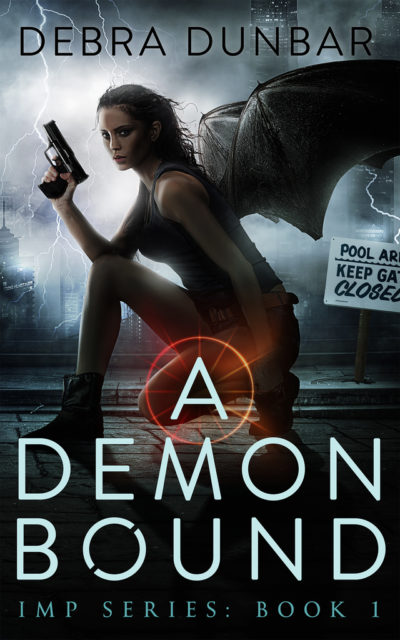
 While the cover image is certainly striking, I should mention that it is inaccurate in one significant point. At no point do I recall the heroine ever wielding a gun. While such false advertising would normally be a sore point, in this particular case, we’ll give them a pass – since the reason she doesn’t, is because she is simply too bad-ass to need one. For
While the cover image is certainly striking, I should mention that it is inaccurate in one significant point. At no point do I recall the heroine ever wielding a gun. While such false advertising would normally be a sore point, in this particular case, we’ll give them a pass – since the reason she doesn’t, is because she is simply too bad-ass to need one. For 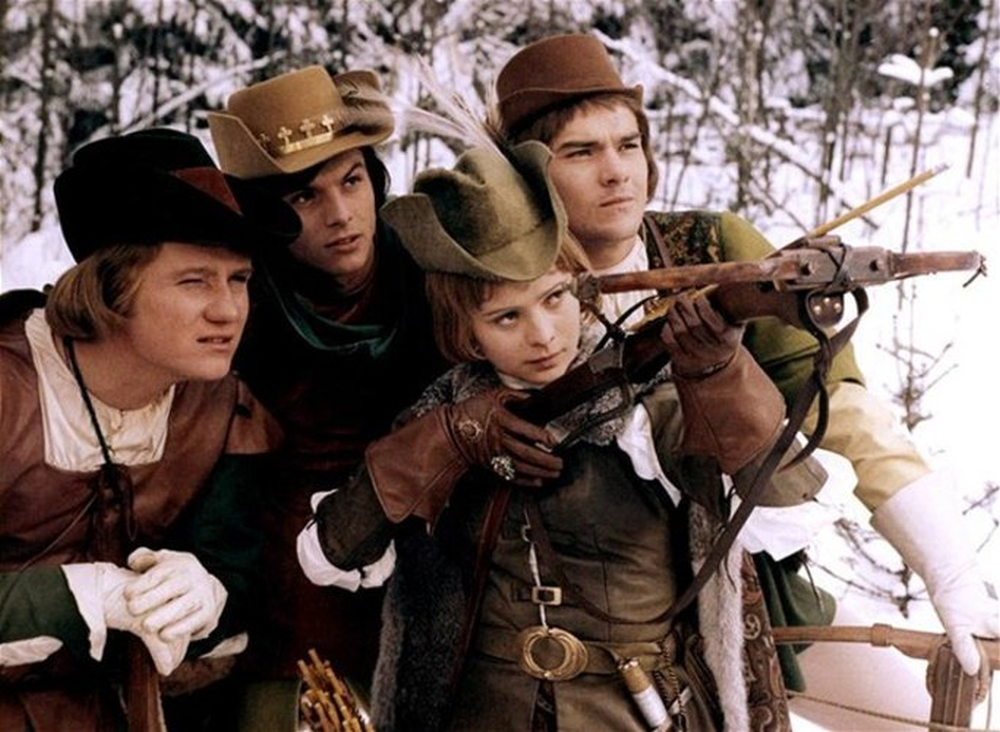
 The blurb for this one reads, “Terra Cross is just your typical paranormal princess. She plays poker with goblins and leprechauns. She savors her morning muffin from the Pacific Sunrise Bakery in suburban California. She solves galactic crime cases. And on a particularly wild day, she can even see into the future.” It is somewhat inaccurate, at least as far as this novel goes. I don’t recall any poker at all, muffins appear once, and as for the crime-solving… Well, sorta but not really. There is, however, likely good reason, since the novel is a prequel to Summers’s “Sorcery and Science” series, in which I presume Terra does more of the above.
The blurb for this one reads, “Terra Cross is just your typical paranormal princess. She plays poker with goblins and leprechauns. She savors her morning muffin from the Pacific Sunrise Bakery in suburban California. She solves galactic crime cases. And on a particularly wild day, she can even see into the future.” It is somewhat inaccurate, at least as far as this novel goes. I don’t recall any poker at all, muffins appear once, and as for the crime-solving… Well, sorta but not really. There is, however, likely good reason, since the novel is a prequel to Summers’s “Sorcery and Science” series, in which I presume Terra does more of the above.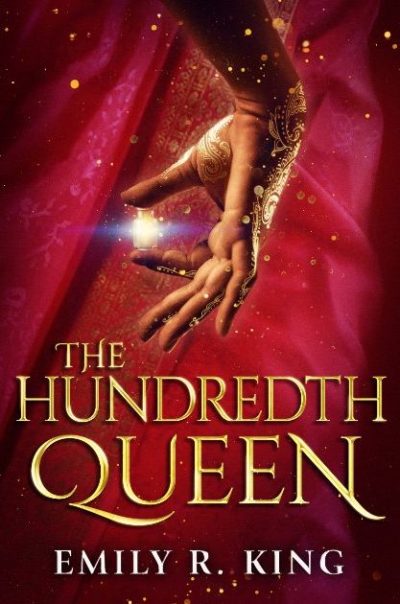 An interesting premise gets wasted, buried under a muddied writing style which sets up in one direction, then abandons it for another. Orphan Kalinda has been brought up by The Sisterhood in their remote temple in the mountains (kinda Indian, kinda Sumerian, annoyingly non-specific), training in the ways of a warrior – though others have far more talent in the era. Her life is upended when the local monarch, Tarek, visits the temple and selects Kalinda to be his next wife. Next, as in he already has 99, not to mention his additional courtesans. The problem for Kalinda is, this sets up a tournament in which she can be challenged by the other women, who seek to supplant her.
An interesting premise gets wasted, buried under a muddied writing style which sets up in one direction, then abandons it for another. Orphan Kalinda has been brought up by The Sisterhood in their remote temple in the mountains (kinda Indian, kinda Sumerian, annoyingly non-specific), training in the ways of a warrior – though others have far more talent in the era. Her life is upended when the local monarch, Tarek, visits the temple and selects Kalinda to be his next wife. Next, as in he already has 99, not to mention his additional courtesans. The problem for Kalinda is, this sets up a tournament in which she can be challenged by the other women, who seek to supplant her. After breaking up with her boyfriend, Gloria (Hathaway) holes up in her middle-American hometown. She gets a job in a bar, run by her childhood pal, Oscar (Sudeikis) – not that this employment does much for Gloria’s burgeoning alcoholism. Meanwhile, over in Korea, the city of Seoul is being plagued by a giant monster, which will appear out of nowhere, behave oddly, and then vanish again. Gloria eventually figures out that when she goes through a particular spot – a local children’s playground – at a specific time, the creature appears in Korea, and its actions reflect hers. Turns out Oscar can do the same, manifesting in Seoul as a giant robot, and he may not be as benign with his new-found powers, as Gloria is attempting to be.
After breaking up with her boyfriend, Gloria (Hathaway) holes up in her middle-American hometown. She gets a job in a bar, run by her childhood pal, Oscar (Sudeikis) – not that this employment does much for Gloria’s burgeoning alcoholism. Meanwhile, over in Korea, the city of Seoul is being plagued by a giant monster, which will appear out of nowhere, behave oddly, and then vanish again. Gloria eventually figures out that when she goes through a particular spot – a local children’s playground – at a specific time, the creature appears in Korea, and its actions reflect hers. Turns out Oscar can do the same, manifesting in Seoul as a giant robot, and he may not be as benign with his new-found powers, as Gloria is attempting to be.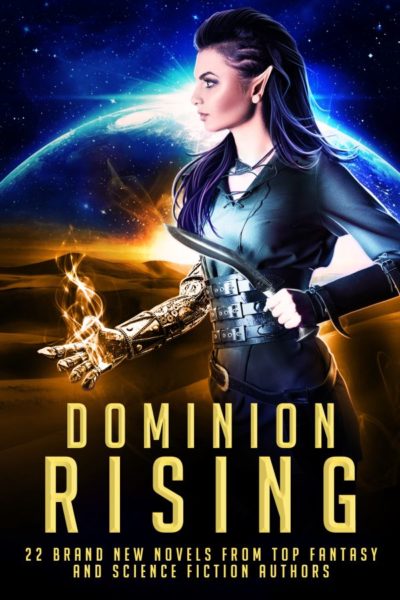 I am a sucker for bulk-buying. Regular readers will know this, since one of the first things reviewed here was the
I am a sucker for bulk-buying. Regular readers will know this, since one of the first things reviewed here was the 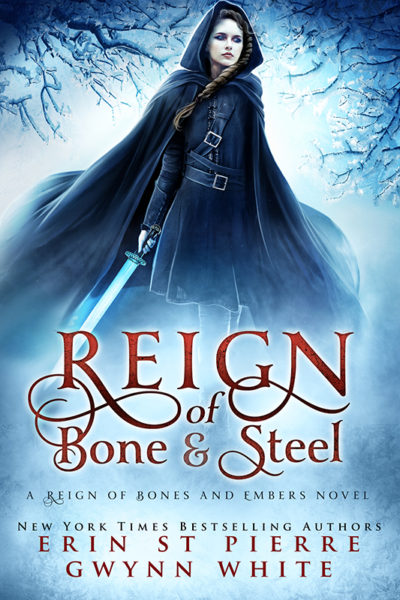 This certainly doesn’t waste any time, starting in the middle of a brutal pitched battle between the kingdom of Yatres, and their mortal enemies, the Nyhans. Among the Fae – basically, elves – in the former army is the warrior Caeda, and it’s her side that emerges victorious. But the price paid by the fallen on both sides is an ugly one. Their souls are absorbed through a magical sword, wielded by the Fae known as the Soul-Reaper, and fed to an artifact called the Bone. The trinity of Bone, sword and Reaper have helped sustain Yatres’s power down the centuries.
This certainly doesn’t waste any time, starting in the middle of a brutal pitched battle between the kingdom of Yatres, and their mortal enemies, the Nyhans. Among the Fae – basically, elves – in the former army is the warrior Caeda, and it’s her side that emerges victorious. But the price paid by the fallen on both sides is an ugly one. Their souls are absorbed through a magical sword, wielded by the Fae known as the Soul-Reaper, and fed to an artifact called the Bone. The trinity of Bone, sword and Reaper have helped sustain Yatres’s power down the centuries. I’m not sure if the problems here are a result of there being two authors credited on this story. It could certainly explain them. For rather than providing a single coherent vision, this feels like both its universe and characters are being pulled in too many different directions. It’s overstuffed with ideas and, instead of them being developed fully, scurries from one to the next, as if the writers were competing to have the final word. This comes to an end in a rather ludicrous finale. There, the entire plot takes a right turn, with the biological weapon which has formed much of the early focus all but discarded.
I’m not sure if the problems here are a result of there being two authors credited on this story. It could certainly explain them. For rather than providing a single coherent vision, this feels like both its universe and characters are being pulled in too many different directions. It’s overstuffed with ideas and, instead of them being developed fully, scurries from one to the next, as if the writers were competing to have the final word. This comes to an end in a rather ludicrous finale. There, the entire plot takes a right turn, with the biological weapon which has formed much of the early focus all but discarded. Petra is a teenage Roman slave at around the birth of Christ. She is completely under the thumb of her sadistic master, Clarius, until a strange conjunction of events and a poisonous herb with mystical qualities changes the power dynamic entirely. Both of them, together with her lover, Lucius, attain immortality. But it’s an immortality which requires the two men to drink from Petra annually, or they will degenerate into sub-human monsters. Neither is happy with the arrangement: Clarius is not used to being reliant on anyone, least of all his former property, and Lucius hates the fact Petra agreed to submit to their ex-master, in order to save him. As the centuries stretch into millennia, Petra begins, slowly, to put together a group people who will be capable of defeating Lucius and the immortals he has recruited, allowing her to live in eternal peace with Lucius.
Petra is a teenage Roman slave at around the birth of Christ. She is completely under the thumb of her sadistic master, Clarius, until a strange conjunction of events and a poisonous herb with mystical qualities changes the power dynamic entirely. Both of them, together with her lover, Lucius, attain immortality. But it’s an immortality which requires the two men to drink from Petra annually, or they will degenerate into sub-human monsters. Neither is happy with the arrangement: Clarius is not used to being reliant on anyone, least of all his former property, and Lucius hates the fact Petra agreed to submit to their ex-master, in order to save him. As the centuries stretch into millennia, Petra begins, slowly, to put together a group people who will be capable of defeating Lucius and the immortals he has recruited, allowing her to live in eternal peace with Lucius.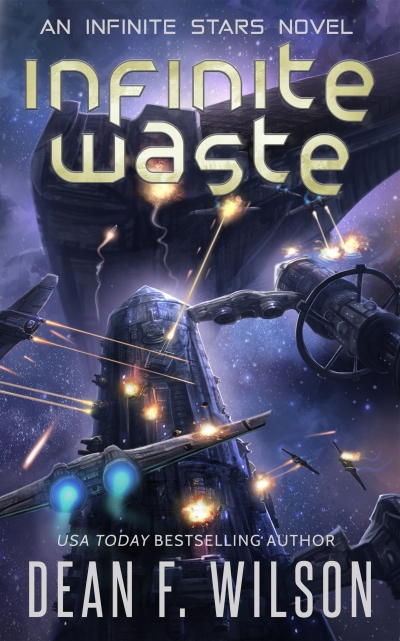 This initially seemed like a borderline entry, which I kept reading purely for entertainment. It’s about an exploratory star-ship, the Gemini, out on the very edge of known space, which comes across a giant barge, packed with nuclear waste and populated by a race of rat-humanoids, the Raetuumak. The Gemini is an appropriate name for the craft, as it’s effectively two separate ships, each with their own captain and very different approaches. Maggie Antwa, commander of Gemini Right, is a cautious scientist who abhors violence in any form, and was compelled to take on this mission after being involved in a environmentalist rebellion against the ruling Empire. Over in Gemini Left, on the other hand, Skip Sutridge is a square-jawed believer in shooting first and asking questions… well, never, to be honest. He has been sent to the fringes, probably to try and keep him out of trouble.
This initially seemed like a borderline entry, which I kept reading purely for entertainment. It’s about an exploratory star-ship, the Gemini, out on the very edge of known space, which comes across a giant barge, packed with nuclear waste and populated by a race of rat-humanoids, the Raetuumak. The Gemini is an appropriate name for the craft, as it’s effectively two separate ships, each with their own captain and very different approaches. Maggie Antwa, commander of Gemini Right, is a cautious scientist who abhors violence in any form, and was compelled to take on this mission after being involved in a environmentalist rebellion against the ruling Empire. Over in Gemini Left, on the other hand, Skip Sutridge is a square-jawed believer in shooting first and asking questions… well, never, to be honest. He has been sent to the fringes, probably to try and keep him out of trouble.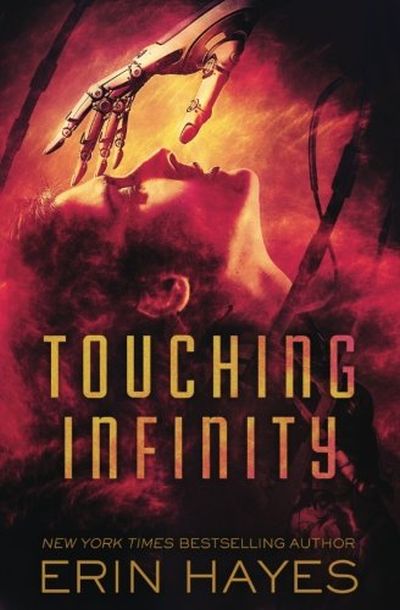 I will confess to a little post-read confusion here. Amazon calls this Volume 2 in the author’s Rogue Galaxy series – but I could find no information, there or elsewhere, regarding Volume 1. I suspect Amazon and Goodreads are wrong, and this is actually the first entry, as stated in the Dominion Rising collection. It certainly
I will confess to a little post-read confusion here. Amazon calls this Volume 2 in the author’s Rogue Galaxy series – but I could find no information, there or elsewhere, regarding Volume 1. I suspect Amazon and Goodreads are wrong, and this is actually the first entry, as stated in the Dominion Rising collection. It certainly 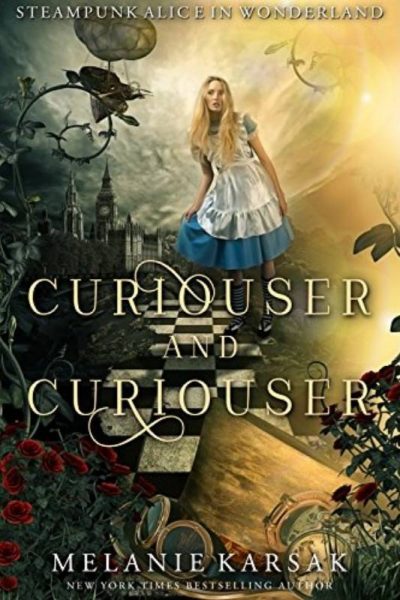 If you thought “Alice in Wonderland was okay, but it really needed more air-ships,” then this book is for you. It’s a steampunk take on Lewis Carroll’s classic tale, set in an alternate universe version of Victorian London. Specifically, 1851, when the renowned Great Exhibition took place in Hyde Park. Though it doesn’t actually feel particularly “alternate”; this angle lives mostly in its trappings, such as people using air-ships to get around, or clockwork cats, rather than in elements necessary to the plot. But that’s okay, because at its core, the story is strong enough to stand on its own.
If you thought “Alice in Wonderland was okay, but it really needed more air-ships,” then this book is for you. It’s a steampunk take on Lewis Carroll’s classic tale, set in an alternate universe version of Victorian London. Specifically, 1851, when the renowned Great Exhibition took place in Hyde Park. Though it doesn’t actually feel particularly “alternate”; this angle lives mostly in its trappings, such as people using air-ships to get around, or clockwork cats, rather than in elements necessary to the plot. But that’s okay, because at its core, the story is strong enough to stand on its own.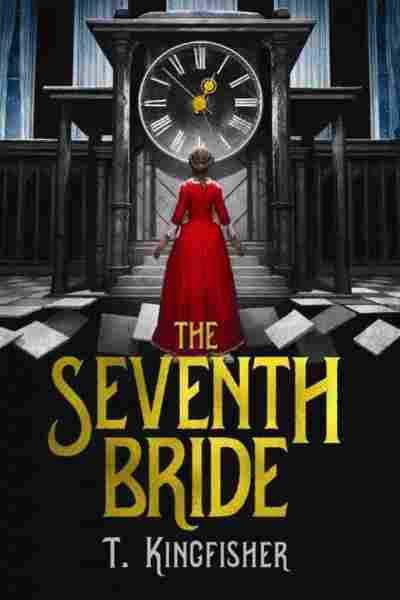 Almost all the action heroine novels I’ve read of late have been Volume 1 in a series. While not necessarily a bad thing, this does tend to lead to a sense of unfulfilled resolution. “Happy ever after” is frequently replaced by a semi-cliffhanger, intend to separate the reader from their cash for Volume 2. It rarely works, and is more likely to annoy me. After all, I’ve invested significant quantities of time (if not perhaps money; these introductory items tend to be of the 99-cent variety, so I guess the buyer should beware) in each tale, and to be left dangling is frustrating. That’s why it was especially nice to read a book like this, which tells a complete story, with a beginning, a middle and a solid, satisfactory end.
Almost all the action heroine novels I’ve read of late have been Volume 1 in a series. While not necessarily a bad thing, this does tend to lead to a sense of unfulfilled resolution. “Happy ever after” is frequently replaced by a semi-cliffhanger, intend to separate the reader from their cash for Volume 2. It rarely works, and is more likely to annoy me. After all, I’ve invested significant quantities of time (if not perhaps money; these introductory items tend to be of the 99-cent variety, so I guess the buyer should beware) in each tale, and to be left dangling is frustrating. That’s why it was especially nice to read a book like this, which tells a complete story, with a beginning, a middle and a solid, satisfactory end.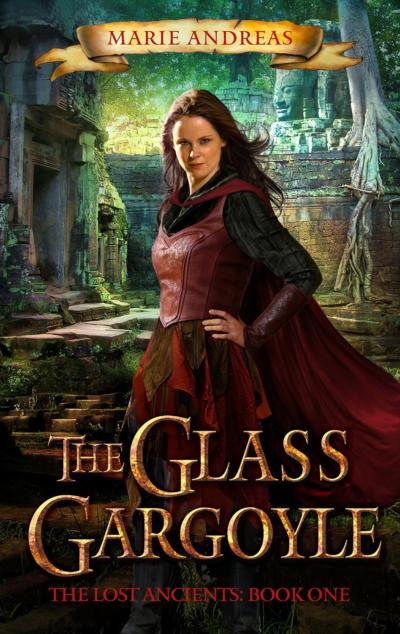 Taryn St. Giles is an out of work archaeologist, who has taken up bounty hunting in order to pay the overdue rent, after the untimely death of her current patron. However, her latest target turns out to be considerably more than she can handle. For Alric is a master of both disguise and hand-to-hand combat, and Taryn’s pursuit of him rapidly entangles the heroine in a deepening web of magic and intrigue. The titular artifact – which doesn’t actually show up until well into the second half – is a potential gate, which could open a doorway and leave this world a thoroughly unpleasant place for just about everyone. Fortunately, Taryn has friends both academic and physically-inclined on her side, as well as a trio of semi-domesticated fairies. Though the last-named are engaged in their own war, with a local family of squirrels.
Taryn St. Giles is an out of work archaeologist, who has taken up bounty hunting in order to pay the overdue rent, after the untimely death of her current patron. However, her latest target turns out to be considerably more than she can handle. For Alric is a master of both disguise and hand-to-hand combat, and Taryn’s pursuit of him rapidly entangles the heroine in a deepening web of magic and intrigue. The titular artifact – which doesn’t actually show up until well into the second half – is a potential gate, which could open a doorway and leave this world a thoroughly unpleasant place for just about everyone. Fortunately, Taryn has friends both academic and physically-inclined on her side, as well as a trio of semi-domesticated fairies. Though the last-named are engaged in their own war, with a local family of squirrels.